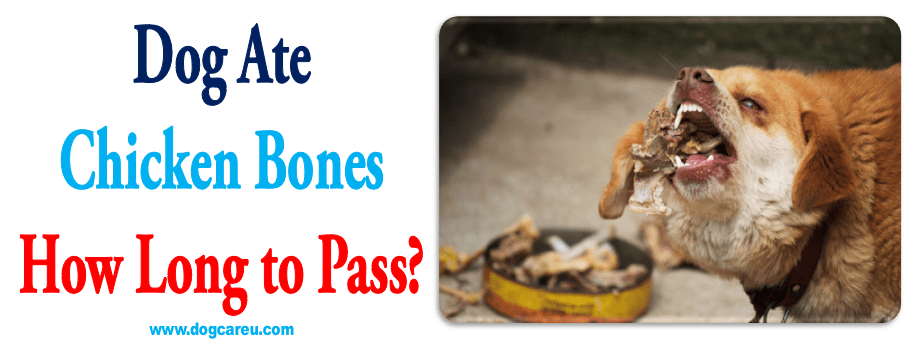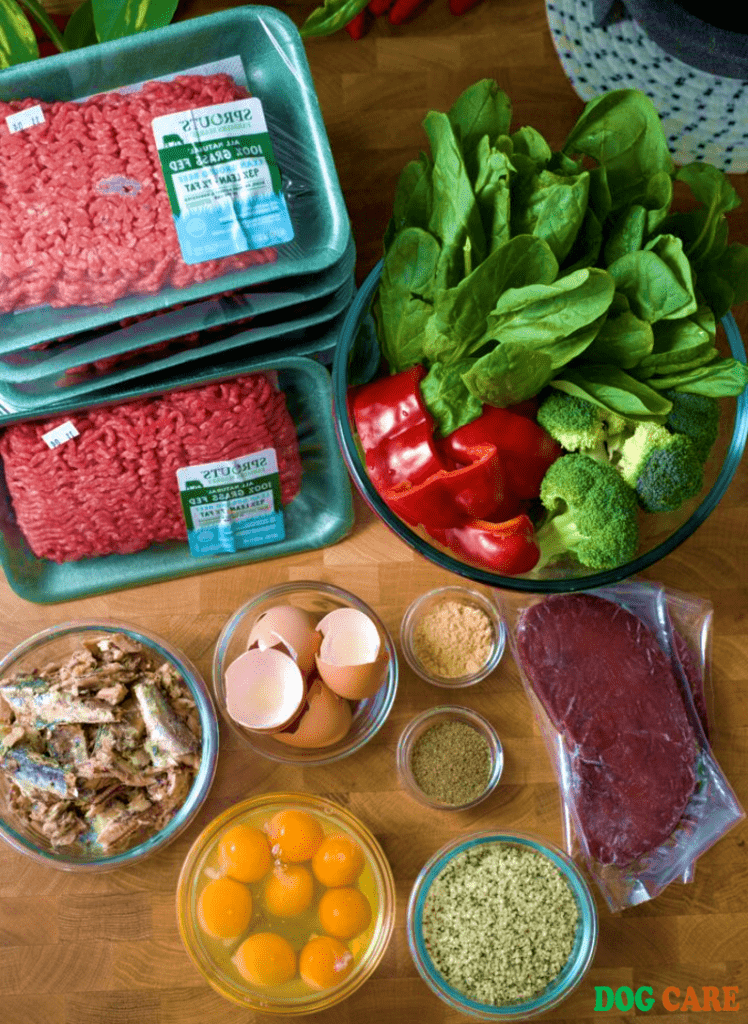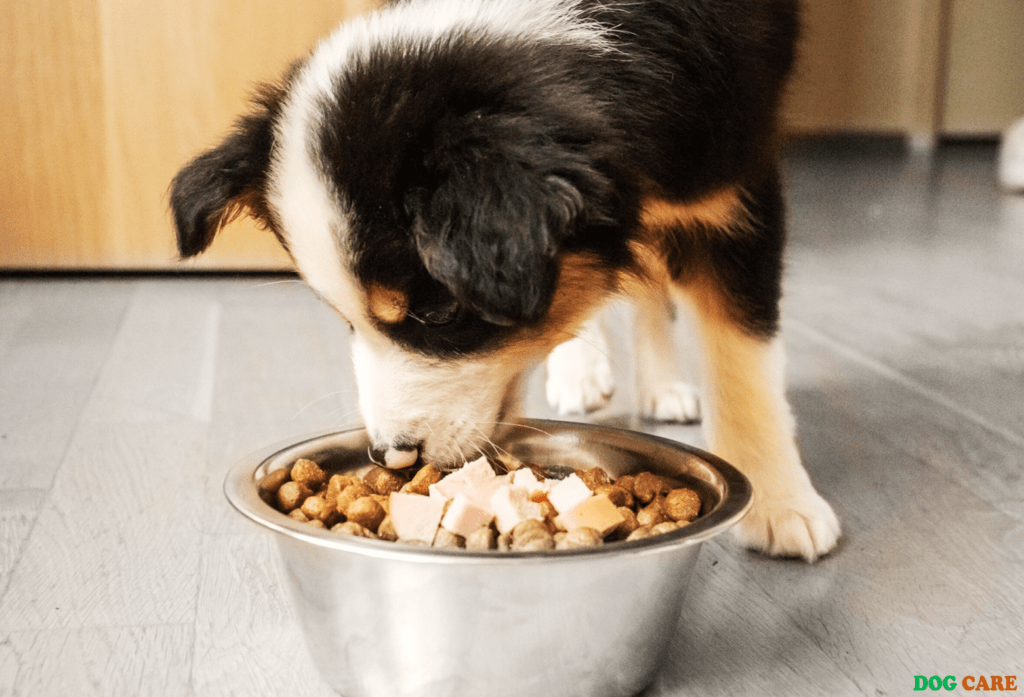Dog Ate Chicken Bones How Long to Pass – It typically takes 24 to 48 hours for a dog to pass chicken bones naturally. Dogs typically take 24 to 48 hours to pass chicken bones naturally through their digestive system.
While some bones may break down and be safely digested, others can cause serious health issues such as blockages or perforations in the digestive tract. It is important to monitor your dog for signs of discomfort or distress, and contact a veterinarian if any symptoms arise.
In the meantime, keep a close eye on your dog’s eating, drinking, and bowel movements to ensure the bones pass without incident. While waiting for the bones to pass, it is also recommended to feed your dog a bland diet to minimize the risk of any further complications.

Potential Risks Of Chicken Bones For Dogs
Eating chicken bones can pose serious risks to dogs, including potential damage to their digestive tract. While passing time can vary, it’s crucial to monitor the dog for any signs of discomfort or distress. Seeking immediate veterinary care is essential if any symptoms arise.
Risks Of Ingesting Chicken Bones
Eating chicken bones can pose potential risks to dogs, as these bones can splinter and cause various problems in their digestive system. Although dogs have a natural instinct to chew on bones, it is important to be aware of the dangers associated with feeding them chicken bones, or any other types of bones for that matter.
Dangerous Effects Of Chicken Bones On Dogs
When dogs consume chicken bones, they are at risk of experiencing a range of dangerous effects. These effects can include:
1. Choking: Chicken bones can splinter and lodge in your dog’s throat, causing them to choke. This can lead to difficulty breathing and potentially life-threatening situations.
2. Intestinal Blockage: The sharp edges of chicken bones can cause tears and punctures in your dog’s digestive tract, leading to a potentially fatal condition known as intestinal blockage. This condition may require urgent surgical intervention to remove the blockage and prevent further complications.
3. Pancreatitis: Consumption of fatty chicken skin or meat can trigger pancreatitis, a painful condition characterized by inflammation of the pancreas. This can lead to abdominal pain, vomiting, diarrhea, and require veterinary treatment.
4. Dentition Issues: Chewing on chicken bones can cause dental problems for dogs, such as broken teeth, gum injuries, and wear on enamel. These dental issues can lead to pain, difficulty eating, and even infections.
5. Bacterial Infections: Raw chicken or chicken bones may contain harmful bacteria, such as salmonella. Ingesting these bacteria can cause food poisoning and gastrointestinal upset in dogs, leading to symptoms like diarrhea, vomiting, and dehydration.
Overall, it is critical to recognize the potential risks that chicken bones pose to your dog’s health. As a responsible pet owner, it is important to avoid feeding your furry friend chicken bones and opt for safer chew toys or treats that won’t jeopardize their well-being.
Timeline Of Chicken Bone Digestion In Dogs
Knowing how long it takes for a dog to pass chicken bones is crucial for pet owners who are concerned about their furry friend’s health. The timeline of chicken bone digestion in dogs can vary depending on several factors, including the size of the bones, the dog’s age, and overall health. Let’s explore the stages of digestion and the factors affecting digestion time.
Stages Of Digestion
Digestion in dogs occurs in several stages, from consumption to elimination. Understanding these stages can give you a better idea of how long it may take for your dog to pass chicken bones:
- Ingestion: Once a dog consumes chicken bones, they make their way down the esophagus and into the stomach. This initial stage usually happens quite quickly, within a few minutes.
- Stomach Breakdown: In the stomach, gastric acids and enzymes work to break down the bones into smaller fragments. This process can take anywhere from 4 to 8 hours.
- Intestinal Transit: The partially digested bones then move into the small intestine, where further digestion and nutrient absorption occur. This stage typically lasts 8 to 12 hours.
- Elimination: Finally, any undigested remnants, including the bones, are eliminated as waste through the large intestine and rectum. This process can take an additional 12 to 48 hours.
Factors Affecting Digestion Time
Several factors can influence how long it takes for a dog to pass chicken bones:
- Size of Bones: Larger bones may take longer to break down and pass through the digestive system compared to smaller bones.
- Dog’s Size and Age: Smaller dogs and puppies tend to have faster digestion times compared to larger dogs and adult dogs.
- Health Condition: Dogs with underlying health issues such as gastrointestinal disorders may experience slower digestion and elimination processes.
- Other Food Consumed: The presence of other food in the digestive system can affect the overall digestion time of the chicken bones.
While the timeline provided showcases the general digestion process, it is essential to monitor your dog closely if they have consumed chicken bones. If your dog experiences symptoms such as vomiting, diarrhea, abdominal pain, or difficulty defecating, seek immediate veterinary attention.
Signs Of Obstruction From Chicken Bones
When a dog consumes chicken bones, there is a risk of the bones causing an obstruction in the digestive system. It’s crucial for pet owners to be aware of the signs indicating a potential obstruction from chicken bones, as prompt attention is vital to the well-being of the dog.
Symptoms Of Obstruction
If your dog has consumed chicken bones, watch out for these symptoms, which could indicate a potential obstruction:
- Vomiting: Frequent vomiting or retching without producing anything.
- Straining during defecation: Difficulty in passing stool or straining while doing so.
- Appetite changes: Sudden loss of appetite or refusal to eat.
- Abdominal pain: Signs of discomfort or tenderness in the abdominal area.
When To Seek Veterinary Assistance
If you observe any of these signs, it’s essential to seek veterinary assistance promptly. Delay in treatment can lead to serious complications and endanger the health of your dog.
Remember that the safety and well-being of your furry friend are of utmost importance, so never hesitate to consult a veterinarian if you suspect any potential issues arising from the consumption of chicken bones.
Protecting Your Dog From Chicken Bone Hazards
Protect your dog from the hazards of chicken bone consumption by understanding how long it takes for them to pass through their digestive system. Monitoring your dog closely and seeking veterinary help if necessary can help prevent complications.
Preventive Measures
When it comes to safeguarding your four-legged friend from the dangers of chicken bone consumption, taking preventive measures is key. Follow these simple steps to protect your pup:
- Ensure chicken bones are discarded properly: Keep all chicken bones out of your furry companion’s reach by securely disposing of them in a sealed trash can. Dogs have an innate ability to find even the tiniest morsel of food, so it’s crucial to be diligent in removing chicken bones from their environment.
- Avoid feeding your dog cooked chicken bones: While the idea of sharing your delicious chicken drumstick may be tempting, it’s important to resist the urge. Cooked bones can splinter easily, posing a serious choking and internal injury hazard for your furry friend.
- Monitor mealtime gatherings: If you have friends or family over for a meal, be cautious about the location where you feed your dog. It’s best to keep your dog in a separate area during mealtime to prevent them from accidentally consuming chicken bones.
- Train your dog to “leave it”: Teaching your dog the “leave it” command can be immensely helpful in preventing them from devouring any suspicious items, including chicken bones. Consistently reinforcing this command during daily training sessions will instill the concept in your pet’s mind.
Safe Alternatives For Canine Consumption
If you’re looking for safe alternatives to fulfill your dog’s craving for meaty goodness, consider these options:
- Rawhides: These durable chews provide a satisfying chewing experience without the risks associated with cooked chicken bones. With various sizes and flavors available, you can find the perfect match for your pup’s preferences.
- Edible dental chews: Not only do these dental chews promote oral health by reducing plaque and tartar buildup, but they also serve as a safe and delicious substitute for chicken bones. Your dog will appreciate the tasty treat while keeping their teeth strong and healthy.
- Soft or canned dog food: If your canine companion still craves meat but has difficulty chewing, opting for soft or canned dog food can be an excellent alternative. These options eliminate the risk of bone splintering and provide a balanced diet for your dog.
By implementing these preventive measures and offering safe alternatives, you can ensure your beloved pup’s health and happiness while keeping chicken bone hazards at bay.
Handling Emergency Scenarios
When your dog ingests chicken bones, it can be a cause for concern. While it’s essential to prioritize your pet’s well-being, knowing how to handle emergency situations can help alleviate stress and ensure a timely response. In this article, we’ll guide you through the immediate actions you need to take and what to expect when you visit the veterinary clinic.
Immediate Actions To Take
If you suspect that your dog has ingested chicken bones, it’s crucial to act promptly. Taking immediate actions can help minimize potential risks and ensure your pet’s safety. Here are the steps you should follow:
- Stay calm: It’s natural to feel worried, but staying calm can help you make rational decisions.
- Assess the situation: If possible, try to determine the quantity and type of chicken bones your dog has consumed.
- Do not induce vomiting: Unlike certain substances, inducing vomiting in dogs to remove chicken bones is not recommended. The bones can splinter and cause further damage to the throat or esophagus.
- Contact your veterinarian: Call your vet immediately to inform them about the situation. They will provide specific guidance based on your dog’s breed, size, and overall health.
- Keep an eye on your dog: Observe your dog closely for any signs of discomfort or distress such as choking, gagging, or difficulty breathing.
What To Expect At The Veterinary Clinic
Visiting the veterinary clinic is the next crucial step after your dog has ingested chicken bones. Here’s what you can expect during your visit:
- Physical examination: The vet will conduct a thorough physical examination of your dog, checking for any signs of injury or discomfort.
- X-rays or ultrasound: Depending on the severity of the situation, the vet may recommend further diagnostics to assess the location of the bones in your dog’s digestive system.
- Treatment plan: Based on the examination results, the veterinarian will develop a specialized treatment plan for your dog’s condition. This may involve monitoring your dog closely, providing medication to aid digestion, or surgical intervention in severe cases.
- Post-treatment instructions: Your vet will provide you with specific instructions on how to care for your dog during the recovery process. Following these instructions diligently will help ensure a successful outcome.
Remember, every dog is unique, and their response to ingested chicken bones may vary. It’s essential to seek professional veterinary advice to address the situation effectively. By taking immediate actions and seeking proper medical attention, you can help your beloved pet recover swiftly and prevent potential complications.
Frequently Asked Questions Of Dog Ate Chicken Bones How Long To Pass
How Long Will My Dog Be Sick After Eating Chicken Bones?
Your dog may experience sickness after eating chicken bones. Monitor their symptoms and consult a veterinarian for proper guidance.
How Long Does It Take For A Dog To Poop Out A Chicken Bone?
It can take 1 to 7 days for a dog to safely pass a consumed chicken bone. If you’re concerned, contact your vet immediately.
Will Chicken Bones Dissolve In A Dogs Stomach?
Yes, chicken bones can be dangerous for dogs. They can splinter and cause choking, blockages, or internal injuries. It’s important to keep chicken bones away from your dog to prevent any potential harm to its stomach.
How Do I Help My Dog Pass Chicken Bones?
To help your dog pass chicken bones:
1. Monitor your dog for signs of choking or discomfort.
2. Offer them a small amount of plain pumpkin puree to help lubricate their digestive system.
3. Encourage them to drink plenty of water.
4. Consult a veterinarian for further advice and potential intervention.
5. Prevention is key, so be mindful of keeping chicken bones out of your dog’s reach in the future.
Conclusion
It’s essential to monitor your dog closely after they’ve ingested chicken bones. While it typically takes 1-2 days for the bones to pass, it’s best to consult with a vet to ensure your dog’s safety. Remember to keep all bones out of reach to prevent future mishaps.
Stay vigilant and prioritize your pet’s well-being.


